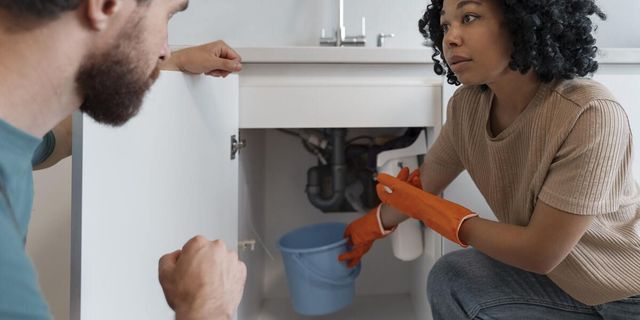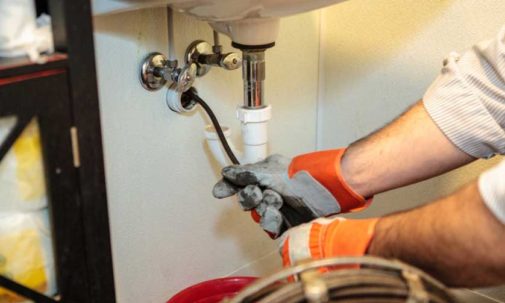Immediate Tips for Critical Situations Until A Plumber Arrives
Immediate Tips for Critical Situations Until A Plumber Arrives
Blog Article
Everybody maintains their unique opinion about Expert Tips for Managing a Plumbing Emergency Until Help Arrives.

Pipes emergencies can strike any time, causing anxiety and possible damage to your home. Whether it's a ruptured pipeline, a blocked drain, or a leaking faucet, knowing just how to handle the situation till an expert plumber shows up can save you from additional complications. This write-up offers essential emergency situation pipes suggestions to help you alleviate damage and gain back control during a pipes crisis.
Shut off the Water
The primary step in any plumbing emergency situation is to shut off the water system. For localized problems, such as a dripping faucet or bathroom, switch off the valve near the component. In the case of a major leakage or burst pipeline, locate your home's primary water shut-off shutoff and transform it off right away. Recognizing the location of these shutoffs beforehand can save useful time during an emergency situation.
Address Tiny Leaks with Temporary Repairs
Small leakages can quickly come to be significant troubles if left unattended. Use these momentary fixes till professional assistance gets here:
While these fixes aren't irreversible, they can assist lessen water loss and damages.
Unclog Drains Securely
A blocked drainpipe can be an aggravating and unpleasant concern. Here's exactly how to tackle it:
If these methods do not function, avoid utilizing extreme pressure, as it might worsen the obstruction.
Handle Overflowing Toilets
An overruning toilet can cause instant disorder. Right here's what you need to do:
Shut down Your Water Heater
In specific emergencies, such as a ruptured pipe, it's important to shut down your water heater. This avoids getting too hot or damages to the unit when water stops streaming. Turn off the power supply to the water heater (electric or gas) and let it cool off to prevent potential risks.
Briefly Stop a Ruptured Pipeline
A burst pipe can cause considerable water damages in minutes. To mitigate the issue:
Call a professional plumbing technician quickly to attend to the issue permanently.
Handle Frozen Piping Meticulously
In cooler climates, frozen pipelines are a typical emergency situation. If you believe a frozen pipe:
Prevent More Damage
Taking fast action to minimize damage can save you money and time in the long run. Below's exactly how:
. Have an Emergency Pipes Set
Prepare a basic pipes emergency kit to manage minor concerns efficiently. Your package must include:
Having these tools accessible can make a considerable difference in your capability to manage emergency situations.
Know When to Call a Professional.
While quick fixes can assist temporarily, particular plumbing concerns require prompt professional focus. Call a plumbing if:.
Without delay getting in touch with an expert ensures the issue is solved appropriately and prevents additional difficulties.
Verdict.
Plumbing emergencies can be frustrating, but with the best understanding and devices, you can take care of the situation efficiently up until aid arrives. By turning off the water system, resolving small leaks, and utilizing temporary repairs, you can lessen damages and maintain your home safe. Remember, these suggestions are short-term options; constantly consult a certified plumber to deal with the source of the issue. Preparation and quick reasoning are your ideal allies in any kind of plumbing emergency situation.
8 Helpful Tips for Managing Plumbing Emergencies at Home
If your plumbing system hasn’t failed once, wait for it because almost everyone has a story to tell. Sometimes, it could be simple emergencies such as a leaking pipe, a blocked cistern, or even a big burst pipe. In situations like this, you need to have some handy tips to save you some money and from possible damages.
Take care of minor issues early.
Sometimes, you could have avoided an emergency by taking proactive measures while it was still early. Some major plumbing emergencies can be a result of an ignored minor issue. We recommend that you have items like plumbing tapes and other related items. A plumbing tape can allow you to manage minor leaks before the plumber arrives.
Cut off the water supply.
This tip is essential in almost any type of leakage problem. For problems like minor leakages in the toilet or kitchen, turn off the supply that takes water to the affected pipes. If the leakage is a major pipe, you must shut off the supply valve to the entire building. This will help you avoid flooding your home and neighbors if you share a flat.
Know your plumbing system
Folks typically move into a new apartment without understanding the water supply around the building. This can prove disastrous if a water emergency arises and the plumber is far away. The previous tip will prove useless if you don’t practice this one. More importantly, know where your water shut-off valve is located – you’ll need that knowledge to prevent potential home floods.
Have some common handy tools
There are lots of plumbing emergencies that you can handle without hiring a plumber. That’s why you must keep some tools available always. Some tools that you can use to fix simple plumbing emergencies easily include plumbing tapes, screwdrivers, thread seal tapes, plungers, pliers, tape measures, and rubber gloves.
Insulate your pipes from cold
You’ll save yourself from many plumbing expenses if you protect your water pipes from the cold. This is because of the harmful effects that cold weather can have on your pipes. During winter, your pipes can burst from being overly expected to freezing temperatures. So, make sure insulators are there to keep the pipes working correctly.
Avoid practices that will clog your toilet.
Many people indulge in practices that can damage the plumbing system of the entire building. One of these is when they use their toilet to dispose-off garbage. They flush all kinds of things, such as paper towels, bandages, hairs, female sanitary products, etc., down the toilet. This will block your toilet in the long run, incurring unnecessary expenditures. Dump such waste in the trash instead.
Check your dials regularly.
Sometimes, there could be leakages in your home without noticing them in time. So, constantly monitor your water meter dial. If the dial is reading when there is nobody using water, this is an indicator that there is leaking. Check for leaks immediately. Call a plumber as soon as possible if you can’t find any.
https://www.constructionplacements.com/8-helpful-tips-for-managing-plumbing-emergencies-at-home/

I'm just very inquisitive about Plumbing Emergencies: Tips on What To Do Before and I am praying you appreciated the new blog post. So long as you liked our blog posting plz do not forget to pass it around. Many thanks for taking the time to read it.
Call Today Report this page